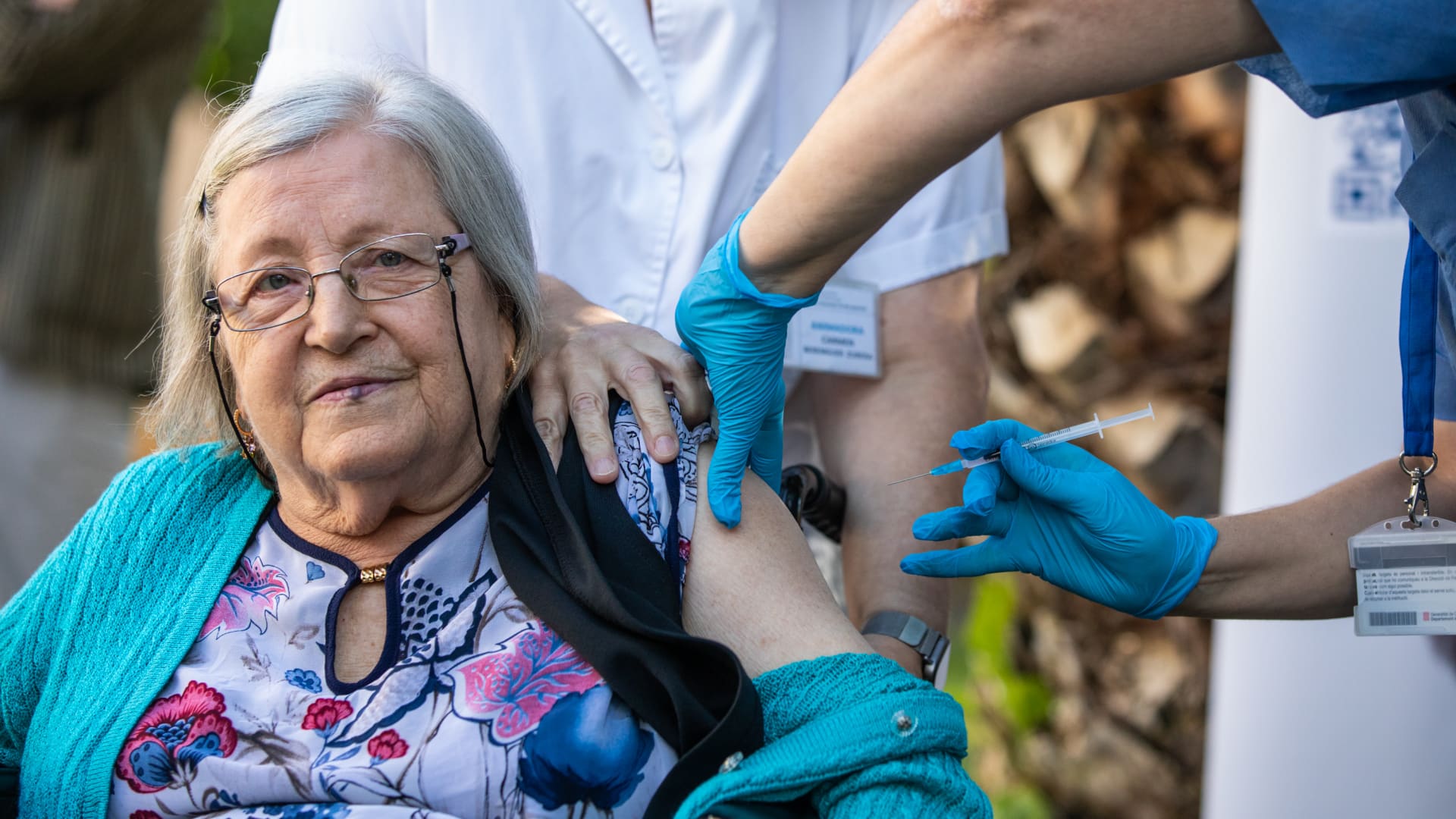The flu vaccine has been 68% effective at preventing hospitalizations in children but has been less protective for seniors this season, according to preliminary data released Wednesday by the Centers for Disease Control and Prevention.
The vaccine was 35% effective at preventing hospitalization for seniors in one study, and 42% effective in a second analysis.
For people with weak immune systems, the vaccine reduced the risk of hospitalization by 44% in one study and 30% in another.
The flu hit early this season, as the weekly hospitalization rate peaked in December and has declined since then, according to CDC data. The flu has caused 25 million illnesses, 280,000 hospitalizations and 18,000 deaths since October. More than 100 children have died from the flu this season.
Flu cases surged last fall after two years in which the virus circulated at low levels due to the masking and social distancing measures put in place during the Covid-19 pandemic.
Dr. Jose Romero, head of the National Center for Immunization and Respiratory Disease, said the simultaneous circulation of Covid, flu and respiratory syncytial virus put significant pressure on hospitals and drug supply chains in the U.S.
“After a brief and anticipated uptick of hospitalizations and cases around the holidays, we are now seeing a continued decrease in Covid, influenza and RSV cases and hospitalizations nationally,” Romero told the CDC’s independent advisory committee Wednesday.
“While influenza activity is declining, it remains possible that a second wave may occur later in the season as it has in the past,” Romero said.
Kids and seniors are typically at highest risk of severe disease from the flu. About 52% of children and 70% of seniors had received a flu vaccine as of late January, according to CDC data. The CDC recommends seasonal vaccination for everyone ages 6 months and older.
The effectiveness of flu vaccines can vary widely season to season depending on how well the strains included in the shots are matched to the circulating viruses. Dr. Lisa Grohskopf, a CDC official, said the vaccines and circulating flu strains were reasonably well matched this season.
Hospitals were slammed last fall by the simultaneous spread of Covid, flu and respiratory syncytial virus. The Children’s Hospital Association had called on the Biden administration to declare a public health emergency in November, calling the surge in hospitalized children at that time “alarming.”
While there are widely available Covid and flu shots, no vaccines exist for RSV. Several companies are developing shots for older adults that could receive Food and Drug Administration approval this year.
Pfizer is developing a vaccine that protects infants from RSV, and Sanofi has asked the FDA to approve an antibody called nirsevimab that also protects children up to two years old.
Join CNBC’s Healthy Returns on March 29, where we’ll convene a virtual gathering of CEOs, scientists, investors and innovators in the health-care space to reflect on the progress made today to reinvent the future of medicine. Plus, we’ll have an exclusive rundown of the best investment opportunities in biopharma, health tech and managed care. Learn more and register today: http://bit.ly/3DUNbRo
